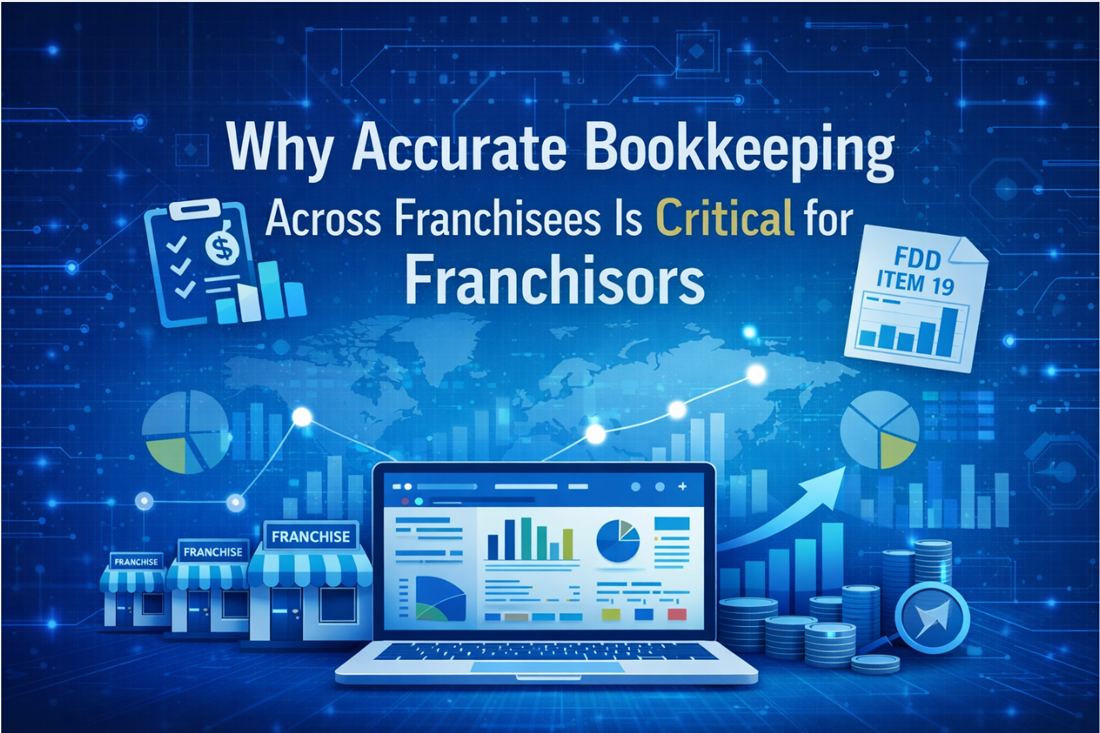Getting funding for your startup business is one of the most important decisions you’ll make as a business owner. The type of startup funding you choose will have long-lasting impacts including:
- How you structure your business and file taxes
- What percentage of ownership or equity you and your investors get
- How much profit your business generates and how much you keep
- What type of bookkeeping and accounting services you need
Startup funding can cover the initial costs of setting up and running a company. It can also help you continue to grow years after you’ve launched.
Most startups seek funding to help them reach their goals faster. For example, you might need startup funding to:
- Buy or repair equipment
- Hire additional employees
- Expand your business into new markets
- Invest in new projects or products
This article will dive into funding for startups of all sizes and stages and provide guidance on choosing the best option for you.
Types of startup business funding
The type of startup funding you choose should align with your goals and strategies. There are three primary types of funding for startup businesses:
- Self-funding
- Loans
- Investors
Let’s look at the types of funding for startups in more detail to help you decide which fits your needs.
1. Self-funding
Self-funding, also called bootstrapping, is when you use personal funds and savings or borrow money from friends and family to fund your startup.
Unlike other options on this list, self-funding usually comes with fewer risks. You don’t have to worry about paying off high-interest loans or giving up control to outside investors. Without investors, you retain control over how you run your business and its future direction.
You also retain all the profits and debts. So, if your business fails, you could end up losing your personal savings. Many startups begin with bootstrapping but eventually need to raise funds to support their growth. Additionally, if your business model has high startup costs, it’s more difficult and risky to fund on your own.
For example, businesses in the food and accommodation industries have the third-highest startup costs on average. Large-scale restaurants, breweries, casinos, and hotels generally need additional funding for real estate, equipment, and labor.
2. Small business loans
A small business loan is a form of debt financing. You borrow money from banks and other lending institutions. Like self-funding, you retain ownership of your startup business.
However, there are risks with this type of startup funding. As with any other loan, a small business loan comes with interest rates.
Interest rates can strain your finances if they too are high. Additionally, a small business loan requires regular monthly repayments, which can impact your cash flow.
There are several types of loans for small businesses and startups. Also, business loans have various requirements that often include personal and business credit scores. If you’re borrowing higher amounts (over $50,000), you may need to show:
- Annual revenue and cash flow
- Years in business (some require two years minimum)
- Business plan
- Financial statements (balance, profit and loss, etc.)
Types of business loans
| Traditional business loans | Banks and other financial institutions offer business loans of varying amounts and interest rates. They also have specific requirements you must meet to be eligible. |
| Microloans | Smaller loans less than $50,000. Six years is the maximum time to repay an SBA microloan. Interest rates are usually between 8% to 13%. |
| Small Business Administration (SBA) loans | The most common are the 7(a) loans or general-purpose loans. SBA’s 504 loans are for purchasing fixed assets like real estate and equipment. |
| Lines of credit (LOC) | Flexible loans you draw from when you need capital—you pay interest only on the amount you use. |
3. Grants
Small business grants are free money given to individuals, businesses, and non-profits. Unlike loans, you don’t have to repay them.
Grants are one of the best sources of funding for startups. However, they come with specific conditions and requirements.
Startups must align with certain goals and objectives, such as advancing a particular industry or contributing to community development. Additionally, applying for grants can be lengthy and time-consuming. They often require a solid business plan, detailed financial projections, and rigorous documentation.
Nonetheless, they’re particularly beneficial during the initial stages, especially if other funding options aren’t available or are too risky.
Government agencies, corporations, and entrepreneurship organizations provide thousands of grants. You can search for federal grants on the website: Grants.gov. There are specialized grants for women, veterans, and minorities. Other resources to search for business grants include:
Several large companies fund small business grants. Here are a few examples:
| Grants | Award amount |
| She’s Connected by AT&T | $20,000 |
| Amazon grant | $15,000 to $25,000 |
| Venmo grant | Up to $10,000 |
| FedEx | Up to $30,000 |
4. Crowdfunding
Crowdfunding is when you raise capital from a large pool of individuals. Primarily, business owners crowdfund through online platforms like Kickstarter or Indiegogo.
It’s particularly useful when your startup has a compelling story or mission that people can connect with emotionally.
There are several types of crowdfunding, including donation, rewards-based, debt, and equity. Rewards-based crowdfunding is the most common, and what you see on Kickstarter. Equity crowdfunding is regulated. Platforms like Republic and WeFunder help founders raise money, but there is a rigorous application process. Entrepreneurs may also need to present finances and pitch.

The type you do will impact your company and crowdfunding platforms usually take a percentage of the funds you raise.
Types of crowdfunding
| Type | What it means |
| Donation | Individuals give money with no strings attached |
| Rewards-based | You give supporters certain rewards like the product or service you’re launching in exchange for their funds. |
| Equity | When you raise capital from individual investors for a private business in exchange for unlisted shares (equity). |
| Debt | Also called peer-to-peer lending, debt crowdfunding is when individuals loan money in exchange for repayment with interest. |
5. Angel investors
An angel investor is a high-net-worth individual who provides startup funds or working capital, usually in exchange for equity or convertible debt. Angel investment usually provides funding when your startup is too new or risky to attract venture capital. Angel investors are typically willing to take on more risk than traditional lenders.
These individual investors invest in the potential of the startup founder and business, with the understanding that many startups fail, but the few companies that succeed offer significant returns.
6. Venture capitalists
Individual venture capitalists (VC) or firms fund startups that have high-growth potential in exchange for an ownership or equity stake. Like any funding method, venture capital has advantages and disadvantages.
VCs bring more than money to the table. Ideally, they’ll have extensive experience in your industry. They may provide valuable advice and connections that help you run and grow your startup.
You’ll share a percentage of your profits and potentially lose some control over business decisions.
Additionally, venture capital firms may expect high investment returns within a relatively short timeframe. Partnering with the wrong VCs can pressure your startup to grow rapidly and prioritize short-term gains over long-term stability.
Venture capitalists typically invest in a business during the early stages (Series A and B funding rounds). Investing in early-stage companies may be riskier, but if a business succeeds, the return on investment can pay off.
7. Startup funding rounds
Startup funding rounds are stages in the lifecycle of a startup where you raise capital from external investors. These rounds provide the financial fuel to help your startup grow and move toward profitability.
Here’s a brief overview of what each round entails:
| Startup funding round | What it is | Median amount |
| Pre-seed | The earliest stage of informal funding when you pool funds from your own savings or from friends and family. You may use these funds to do market research and develop your product. | Not available |
| Seed funding | Seed funding helps you get your business off the ground. It’s the first official stage of funding. You may get funding from angel investors or close friends and family in exchange for convertible debt or a percentage of ownership (ideally less than 10%) of your company. |
$2.3 million |
| Series A | This is the first major series of external, equity-based funding for a startup. Usually, your business will have traction and a proven business model or demand. | $12 million |
| Series B | At this stage, you have a well-established product and a significant user base. The funding you get is for business development, increasing market share, and achieving broader market expansion. | $25 million |
| Series C (and beyond) | Rounds are for if your business is already successful and wants to expand, innovate with new products, or acquire other businesses. Series C and further funding rounds often involve private equity firms, hedge funds, and other institutional investors. | $42 million |
Data source: Crunchbase
8. Incubators and accelerators
Incubators and accelerators are programs that support startups. They differ based on the stage of the startup and the type of support they offer.
Incubator programs support companies at the earliest stages. They help you develop your idea by providing resources such as office space, legal guidance, and access to a network of industry professionals.
Accelerators support more established companies looking to scale up quickly. These programs are usually time-limited. They run for a few months, during which startups receive intense mentoring, education, and networking opportunities.
Often startup incubators and accelerators are used interchangeably.
Here are some examples:
Keep in mind that these have a rigorous application process that includes financial projections and pitches.
What you need to know before getting startup funding
Before you embark on the journey of securing startup business funding, there are several factors you need to consider:
- Understand your business needs: You should know how much funding you need and what you will use it for. This includes knowing your operational costs, projected growth, and future financial needs. Working with an accounting service or virtual CFO with startup experience can help. They’ll be able to pull together many of the necessary financial documents.
- Evaluate funding options: Before moving ahead with startup funding, you must first understand the pros and cons. Funding has lasting impacts on the future of your business so it’s not a decision to take lightly.
- Prepare a business plan: A comprehensive business plan is a requirement for some types of startup funding. It should include details about your business model, market analysis, sales and marketing strategies, and financial projections.
Get support for startup funding
Securing startup funding is a pivotal process that can significantly influence the trajectory of your business. Seeking professional advice is not just recommended—it’s essential.
xendoo can give your startup the financial expertise and support it needs during the funding process.
We provide CFO services, bookkeeping, accounting, and tax preparation for growing businesses. With a team of financial experts in your corner, it’s easier to provide a clear and accurate picture of your finances for potential funding. Investors and lenders will expect to see balance sheets, income statements, and more. A bookkeeper or accountant will help you prepare with organized, accurate financials.
Need a bookkeeper, accountant, or CPA? Schedule a call to learn more about how xendoo can help your business, whether you’re funding a startup or need ongoing bookkeeping and accounting.
FAQs
How much do you need to fund a startup?
How much funding your startup needs varies based on your industry and business model. However, successful startups generally need between a few thousand dollars to millions for the first year. Create a detailed business plan to estimate your specific needs accurately.
[av_sidebar widget_area=’Blog Post Disclaimer’ av_uid=’av-om2w’]









